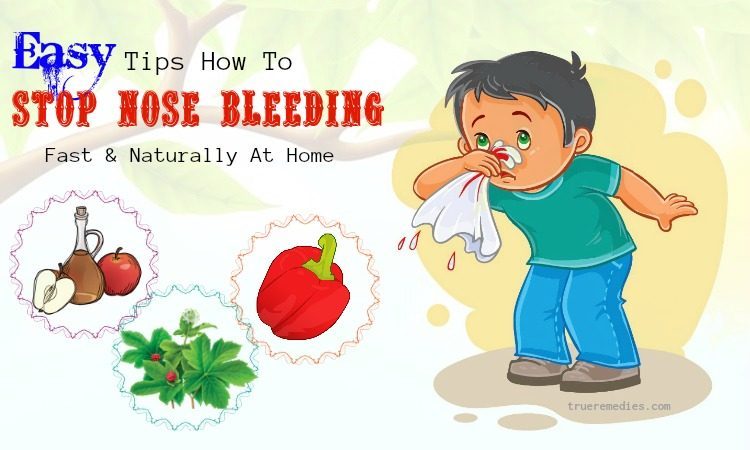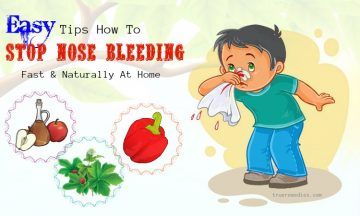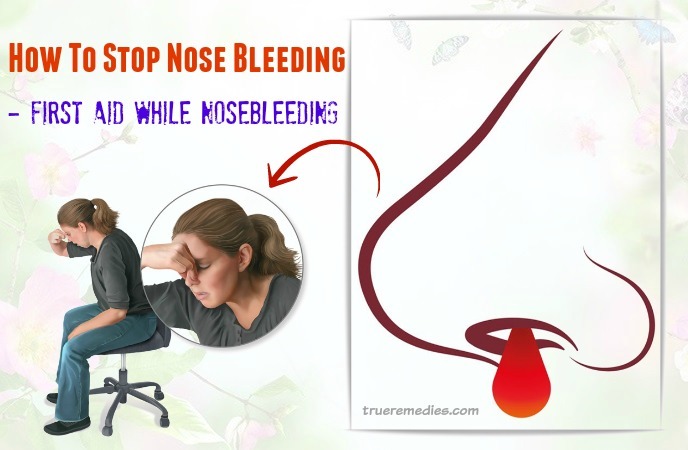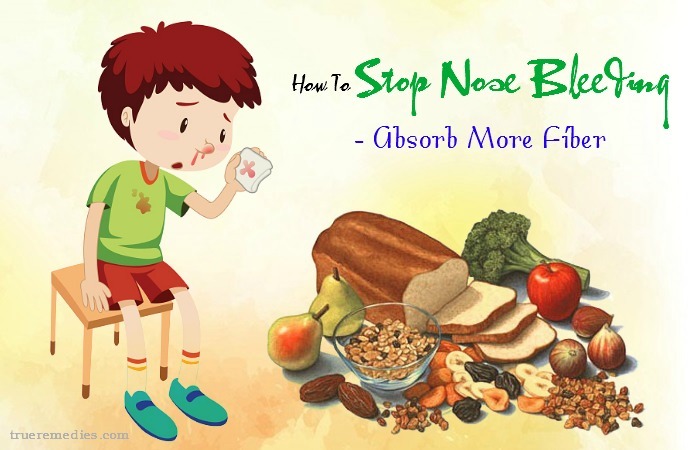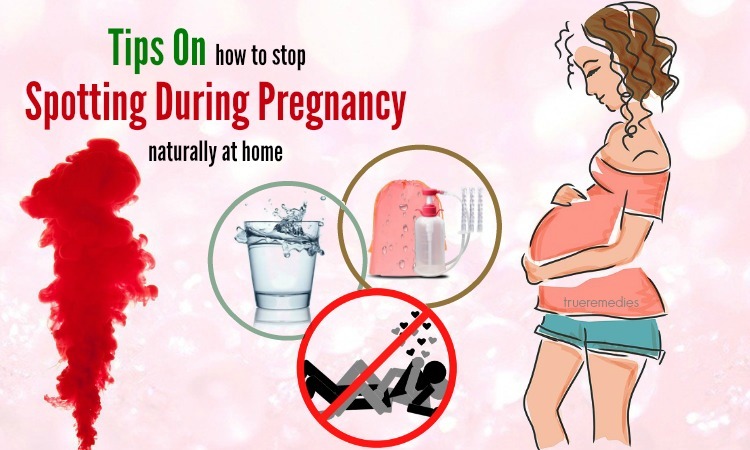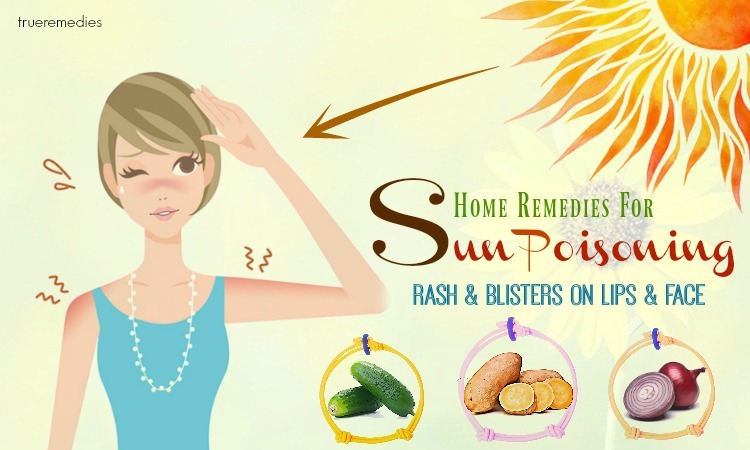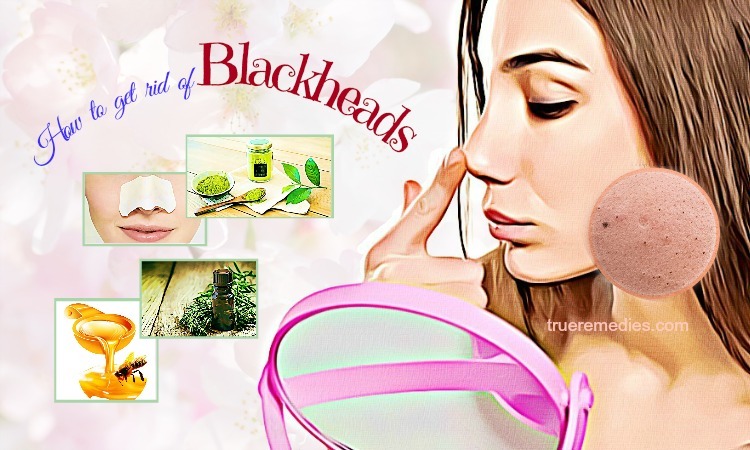updated: 06/20/2019
Contents
Nose bleeding is a common medical condition that can occur spontaneously. This occurs when the nasal cavity is painful or dry. Damage to the small blood vessels in the nasal cavity causes bleeding. Nasal bleeding occurs frequently in patients with nasal allergies, sinusitis, hypertension, or blood disorders.
If you regularly suffer from nose bleeding, this article is for you. Below, we provide you with natural tips to help you resolve your situation. Many people have successfully treated their condition just by applying some of these tips. But first, let's find out the basic information about nose bleeding.
What Is Nose Bleeding?
Nose bleeding is a common phenomenon in which the blood flows out of your nose because the blood vessels inside the nose are hurt. Usually, blood only flows from one side of the nose. Nose bleeding is a common medical condition that can occur spontaneously. This occurs when the nasal cavity is painful or dry. The condition mainly originates from the blood vessels of the nasal septum (the central part between the nostrils). Most people have at least one nose bleeding in their lifetime. In most cases, blood will stop flowing when you press on the nose, but some people may need medical attention to deal with this [1] [2].
When you have a nosebleeding, blood can flow out of your nose or run down your throat.In the first case, although nose bleeding can be very scary, it usually only makes you feel slightly uncomfortable and they are not life threatening. In the second case, you may be suffering from some serious diseases. Frequent bleeding is more than once a week. Nose bleeding can be a sign of some serious illnesses such as acute and chronic rhinitis, nasopharynx cancer, vitamin C deficiency, sinus infection, and hypertension. If you have a foreign object in your nose, you may also have nose bleeding.
What Are Common Causes Of Nose Bleeding?
Nose bleeding is not the cause of your life threatening. Dr. Ashim Desai, an Indian gynecologist, said various reasons for nosebleeds include injury, allergy, infection and any other reason. Here are common causes of nose bleeding [3] [4]:
TrueRemedies Partner Solutions

Need a Help from the Leading Expert Online, Available 24/7?
They’re all here and ready to answer your questions online or by phone. Keep asking questions until you get the answer you need.
- Allergic Rhinitis
As a result of the body's allergic reaction, tissues along the nose are swollen. At this point, the capillaries expand and break, causing bleeding. Blood can flow into small streams whenever you blow your nose or sneeze.You should see a doctor to check your allergy risk to know if you may be allergic to anything. This will help you to take appropriate precautions, such as taking antihistamines.
- The Weather Is Too Dry
This factor usually affects patients with a deflection of the nasal septum because the airflow “go through” a narrow area in the nose is faster and this makes the nose drier. This causes irritation, which causes you to sneeze frequently. As a result, you often have nose bleeding.
- Regular Sneezing
Sneezing is also responsible for ulcers of the nasal septum and this can cause bleeding.Children often have nose bleeding because the blood vessels of the nasal septum are broken. The main cause of this condition is a cold or sneezing. This can be controlled by helping the baby restrict sneezing by keeping the nose from drying out.
- Nose – Picking
Nose – picking is a harmless job, but in fact, this action can cause a fall in the hairs of the nose, damaged mucous membranes, broken blood vessels and bleeding.Also, nose – picking is more likely to cause nose bleeding. You should soon give up this bad habit as it may impair the function of the nasal cavity, causing more nose bleeding.
- Infection Of The Sinus Or Tumor In The Nose
In adults, if the blood flowing from your nose is dark or smelly, it is most likely a sign of a sinus infection or tumor in the nose. If you have these signs, the patient should go for a colonoscopy and CT scan.
- Hypertension
Hypertension is a common cause of nose bleeding in older people. As blood pressure increases, the pressure on the blood vessels increases. This can cause broken vessels, leading to dangerous complications such as nose bleeding, cerebral hemorrhage, heart failure, aortic dissection, pericardial hemorrhage, or even permanent blindness.
- Physiological Change
The physiological changes leading to nasal bleeding are common in pregnant women, especially those with high blood pressure during pregnancy. In this case, you should consult the obstetrician for accurate treatment.
- Other Causes
There are many other causes which can cause nose bleeding such as foreign objects, sun exposure, infections, allergies, too dry climate, and accidents.
What Are Common Symptoms Of Nose Bleeding?
Symptoms of nose bleeding include bleeding from one or both sides of the nose. Blood can also flow down the back of the throat, causing coughing or vomiting. After bleeding your nose, you may have black stools. That means you have swallowed a lot of blood.You may experience other symptoms not mentioned. If you have any questions about the signs of the disease, please consult your doctor.
Who Is At High Risk Of This Condition?
Nose bleeding is a fairly common phenomenon. This phenomenon is more common in children than in adults. In addition, patients with the diseases mentioned above are also at high risk for this condition. You can control this problem by minimizing risk factors. Please see your doctor for more information.
When To See A Doctor?
Nose bleeding is not a life-threatening condition, but you should see a doctor if you have one of the following signs:
- Get strong blood spray from your nose.
- You repeatedly vomit blood.
- Have hypertension or hematologic disorders (leukemia).
- You are taking anticoagulant (warfarin).
- You have a fever of 38.9 0 C.
- The nose is bleeding too much.
- Shortness of breath.
- Bleeding does not stop after 30 minutes.
- Occurring after injury, such as a car accident.
Besides, if you have any questions, please consult your doctor. Each person's condition is different, so please consult your doctor to select the most suitable option.
Here are some basic information about nose bleeding that you should know. Hopefully this information can help you determine your exact situation. Here are tips on how to stop nose bleeding fast and naturally. Take a look at TrueRemedies.com!
Top 20 Tips On How To Stop Nose Bleeding Fast At Home
1. First Aid While NoseBleeding
This is the first home remedy in this list of tips on how to stop nose bleedingat home. The first thing you need to do is adjust your body posture. If your condition is not severe, you may be able to conduct first aid at home to stop nose bleeding again. To begin, slowly sit down because this posture will help you feel better than standing up. Tilt your head forward so that blood in the nose gradually dries. You can put towels under the nose to absorb blood. Do not lie down because this posture will cause the blood to go down the throat and cause you to swallow the blood.
Next, clamp the nose. Use your index finger and thumb to clamp the part under the nose so that the two nostrils are fully sealed. This first aid will create direct force on the area where blood vessels are injured. This is considered as an effective method, which helps the blood vessels in the nose to coagulate and stop flowing. Clamp your nose for 10 minutes and then release.If the blood continues to flow, continue clamping pressure on the nose within 10 minutes. When performing first aid with this method, take active breath by mouth.
When the blood in the nose has stopped flowing, you should wash the area around the nose with warm water. Usually, soap and water are the best remedies for cleaning small wounds. In some fragile and sensitive areas, cleaning and antibacterial products are usually a good option that you can use.A common product that works as a cleansing and anti-infective soap is called Chlorhexidine, and you can buy it at most pharmacies without a doctor's prescription. Chlorhexidine needs to be completely diluted before use on the mucous membrane (inner area of the nose). After washing your face, take a rest. This will help prevent further bleeding. You should lie on your stomach when you relax.
2. Cool The Body
This is another must-try treatment in this list of tips on how to stop nose bleeding at home. Lowering the body temperature will help reduce nose bleeding. To do this, you should put some ice cubes in your mouth. This will work faster than cooling the body from the outside (such as using a fan or an air conditioning). In addition, the body will maintain this temperature longer.This method is considered to be more effective than a cold compress on the nose. According to a recent health study, cold compress does not really produce the results you expect.You can eat ice cream to see the same results.
3. Use Nasal Spray
Using nasal spray is one of little – known tips on how to stop nose bleeding at home. If you have nose bleeding but it does not happen often and you do not have high blood pressure problems, you should try nasal sprays. A nasal spray will tighten the blood vessels in the nasal cavity. To use this medication, you should prepare a cotton swab or clean gauze, then spray 1-2 drops of medicine on it. Put the cotton swab into two nasal cavities, continue clamp the nose, and after 10 minutes, try to check whether the nose is still bleeding or not. If the bleeding has stopped, you must leave the cotton swab or gauze in the nasal cavities for an hour because the nose may still bleed again.
Note: Using nasal sprays too often (about 3-4 times a day) can cause addiction and nasal congestion. Therefore, this nasal spray should be used only when the nose is still bleeding although you have clamp the nose in the first 10 minutes.
4. Always Be Gentle With The Nose
This is the next treatment in this list of tips on how to stop nose bleeding at home. Individual activities can also cause nose bleeding, so some of the following precautions will help keep you out of the situation in the future:
- Avoid nose picking because this action can hurt sensitive blood vessels inside the nose. In addition, nose picking also disrupts the blood clot that is covering the injured blood vessel. This is the cause of more blood flow.
- When sneezing, you should open your mouth to avoid the air being strongly pushed out of your nose, causing nose bleeding.
- Always keep the area of the nasal cavity wet by gently rubbing a layer of oil or gel inside the nasal cavity with the cotton swab twice a day.
- Gently blow your nose and perform from one nostril to the other.
- You should trim your nails to avoid having a severe nosebleed.
5. Use A Humidifier
This sounds strange when it comes to tips on how to stop nose bleeding at home, but it works. To increase the humidity of your environment, consider buying a humidifier. Of course, you can place it at home or at work to cope with the drying, especially in the winter.If you do not have a humidifier, place a mistorizer near the heater to increase the humidity of the air.
6. Absorb More Fiber
The next one in this list of tips on how to stop nose bleeding at home is absorbing more fiber. Constipation is a common cause of bowel obstruction. This causes the blood vessels to be constantly stretched, causing nose bleeding. Even so, it can increase arterial pressure and dislodge blood clots, which can lead to more nose bleeding. Constipation can be prevented by eating foods rich in fiber and increasing the amount of water in the body. Eating more fiber helps soften the stool. Some high fiber foods that you should regularly consume are carrots, broccoli, avocados, pears, bananas, oranges, and oats.
Eating about 6 to 12 dried plums a day is considered more effective than the addition of fiber from vegetables. And you can also apply this to prevent constipation.
Note: Say no to spicy and hot food. High blood pressure causes the blood vessels to expand, causing nose bleeding.
7. Use A Nasal Spray Containing Salt
No wonder, this is definitely one that should be mentioned in this list of tips on how to stop nose bleedingat home. This spray can be used several times a day to keep your nose moist. In addition, they will not make you addicted because salt is the only ingredient in this drug. If you do not want to spend money on them, do it yourself. To do this, please follow these following steps:
- To get started, prepare a clean spray
- Take 3 tablespoons full of iodide-free salt with a tablespoon full of baking soda
- Mix these two ingredients together
- Add about 240 ml of warm water or boiling water, stir well
- Put the solution into a spray
The use of this nasal sprays is similar to the instructions in Tip 3, however, you can use this type twice a day to moisten your nose, even if your nose does not bleed.
8. Eat More Foods Containing Flavonoids
Eating more foods containing flavonoids is the next remedy in this list oftips on how to stop nose bleedingat home. Flavonoids is a group of natural compounds which are usually found in citrus fruits. It works to improve the fragility of the capillaries. Therefore, you should consider increasing citrus absorption into the body. Other foods rich in flavonoids include parsley, onions, blueberries, and other berries, pink tea, green tea, ginkgo biloba, red wine, sea urchin, and dark chocolate (with 70% or more cocoa).
You should not use functional foods which supplement flavonoids, such as ginkgo tablets, quercetin, grape seed and flaxseeds extract because they increase the amount of flavonoidsand they can even cause the body to become infected.
9. Avoid Certain Situations
This remedy is one of little – known tips on how to stop nose bleeding at home. If you have nose bleeding, it's best to stay away from situations and effects that make your condition worse. Absolutely do not bend your head back because this posture will cause the blood to flow down your throat. This makes you want to vomit. You should also limit talking and coughing because this will irritate the mucous membranes, leading to nose bleeding returning. If you want to sneeze while your nose is still bleeding, try to sneeze through the mouth to prevent further nose damage or blood flow. Do not blow your nose or pick your nose, especially when your condition improves. Strong actions can “dislodge” the blood clot in the nose and cause the nose to bleed again.
10. Lean Forward And Pinch
This is a fast tip on how to stop nose bleeding. When you suddenly experience a nosebleed, you ought to sit down, not lie down. Then, lean your whole body forwards a little bit to keep the blood from flowing down the throat because it may bother your stomach. After that, sit and lean forwards slightly, then use your thumb and index finger to squeeze the soft middle area of the nose in order to close your nostrils. Keep pinching this part for about 3-5 minutes or even more. In case that after releasing, the blood still comes out, you need to repeat it once again. Breathe calmly with the mouth open whilst pinching the nostrils shut [5].
11. Cold Compress
Cold compress is a common way on how to stop nose bleeding at home that helps to constrict tiny blood vessels in the bleeding nose. Hold a cold compress against the nose for several minutes. Thanks to the cold temperature, it will make the interior blood vessels of the nose narrow, thereby helping to stop bleeding.
You can use an ice pack to apply to the back your neck for the same results [6].
12. Apple Cider Vinegar
The natural acid in apple cider vinegar helps to clot the blood and treat damaged blood vessels in order to prevent nose from bleeding again [7].
Soak a clean cotton ball in apple cider vinegar (white vinegar is also acceptable). Then, place it over your bleeding nostril for 10 minutes or so. Also, drinking the apple cider vinegar mixed with water about 3-4 times per day is a good way to get rid of a nosebleed.
13. Cayenne Pepper
Cayenne pepper can regulate the pressure of blood flow while stimulating cells. As a result, it helps to eliminate the heavy pressure from hemorrhaging the area and promote a fast blood clotting.
Add cayenne pepper as a spice to your diet or take cayenne pepper capsules about thrice per day if you have frequent nosebleeds.
Alternatively, you can warm up a cup of water in the jar, then add 1 teaspoon of cayenne pepper powder into it. Next, drink this mixture. That way, you nose bleeding will stop soon.
14. Onion
Chinese experts claim this remedy in regard to how to stop nose bleeding. Onion juice’s fumes will facilitate blood clotting and stop nosebleed [8].
Dip a cotton ball in the juice of ¼ onion, then put it in your bleeding nostrils for about 3 to 4 minutes. Use this method when necessary.
15. Goldenseal
Hemorrhagic conditions and bleeding disorders will be treated by using goldenseal due to its astringent, antimicrobial and hemostatic properties [9].
You can dip several goldenseal leaves into a cup of hot water. Then, inhale this steam for about 4-5 minutes. However, do not this method for pregnant or breastfeeding women.
16. Witch Hazel
Witch hazel has astringent properties that can stop a nosebleed [10]. Just simply soak a piece of cotton in the extract of witch hazel, then put it into your nostril. After a few minutes, remove it off. Do this method whenever you have a nosebleed.
17. Nettle Leaf
Among herbal tips on how to stop nose bleeding, this is lesser-known, but the results it gives is really worth a try. Nettle leave also have astringent and act as a hemostatic agent. It is best for allergy-related nosebleeds. You can drink nettle leaf to reap its merits [11].
18. Avoid Stuffing Your Nose
When it comes to finding an answer for the question: how to stop nose bleeding, perhaps one of the initial answer is stuffing the nostrils using something. It is common that people may think of using a paper towel, a tissue or cloth to catch with the blood flowing out from the nose. Nonetheless, you should avoid doing so because packing your nostrils with a cotton or tissue could eliminate the top nose lining layer , thereby making it easily prone to bleed more [12].
19. Treatment Of Nose Bleeding Caused By Accident
If your nosebleeding is caused by an accident, you need to perform some of the treatment steps below to improve bleeding and help keep the wound in your nose from getting infected:
- Wash your hands: you should make sure your hands are completely clean to avoid spreading bacteria to wounds. Wash hands with clean water and disinfectant soap for at least 20 seconds. Then dry your hands with a clean towel.
- Carefully remove any foreign object from the nose: to reduce infections and complications, you should use sterile tweezers to remove any foreign object from the nose. You should disinfect the tweezers you intend to use. If you cannot do this, make sure that it is as clean as possible.
- Consider seeking medical help if you are unlikely to touch the injured area: if you cannot see the cut, or it's out of your reach, you will have trouble in treating the wound. You can cause more damage or spread the bacteria to the cut if it is deep in the nose. Therefore, if you encounter this situation, ask for help from a doctor.
20. Add Some Vitamins To The Body
This is another must-try treatment in this list of tips on how to stop nose bleeding at home. Here are some vitamins that you should supplement for your body to prevent or treat your condition:
- Potassium
Potassium helps regulate the fluids in your body, including the amount of water that is contained in your body. Without enough potassium, you may be at risk of dehydration, and this can cause the tissues to dry out, including the tissues inside your nose. Your body requires 2,000 mg of potassium per day to prevent dehydration. You can add potassium to your body through eating bananas, butter and tomatoes.
- Vitamin C
Vitamin C plays an important role in reducing the risk of nose bleeding. Vitamin C prevents a disease called Scurvy. It is a disease caused by a deficiency of vitamin C. Vitamin C is also important for strengthening the blood vessels. You need to achieve 75 to 90 mg of vitamin C in your diet every day. Some foods are rich in vitamin C, such as oranges, guavas, pineapples, tomatoes, cauliflowers, and cabbage [13].
- Iron
Taking iron for your body can prevent your nose bleeding. If you are deficient in iron, your body is prone to blood bleeding, which can cause anemia. Iron is abundant in pork, beef, poultry, red meats, seafood, and grains.
- Vitamin K
If you regularly suffer from nosebleeds, it is important to add vitamin K in your diet. This vitamin ensures that the body's ability to coagulate is normal. You are at risk of vitamin K deficiency if you have liver disease, burns or celiac disease. Your body needs 90-120 mg of vitamin K every day. You can find this vitamin in spinach, kale, cabbage, parsley and cucumber [14].
You can also add these vitamins to your body through the use of functional foods. Consult your doctor before using them.
How To Stop Nose Bleeding – Some Attention
To treat or prevent nose bleeding, in addition to applying the tips above, you should pay attention to some of the following:
- In India, people usually place ghee (dairy) inside the nasal cavity and the blood will stop flowing immediately. This type of dairy can be found at grocery stores or large supermarkets.
- You should not smoke when your nose is bleeding. Smoking causes itching and drying of the nasal cavity.
- Do not use disinfectant creams because some people will be sensitive to this cream and the inflammation of the nose becomes worse. Only use antibiotics prescribed by your doctor to reduce the risk of infection.
- Keep calm no matter how severe the bleeding. Calming will help you not to act peculiarly. Breathe through your mouth and stay calm. In this way, your heart rate will drop and reduce blood flow.
- Remember to increase the moisture for your nose, maintain a healthy diet, and do not keep your hands around the nose area.
- Do not panic if you see your nose bleeding too much. Panic makes you feel more blood flow than reality. In fact, that also includes other liquids on your nose. We have a lot of blood vessel in the nose!
Nosebleeds are common but not pretty. They could make somebody look like they have just stepped out of such a scary situation, so knowing how to stop nose bleeding fast and naturally is a good stuff to learn. The above-mentioned tips are claimed to be able to stop nosebleed. Choose some of them and alternate them in your treating to see how effective they are. If you have any contributing ideas about our article of “Top 20 Tips On How To Stop Nose Bleeding Fast & Naturally At Home” introduced in How To Category, do not hesitate to drop your words below this post. We will answer as soon as we could.

